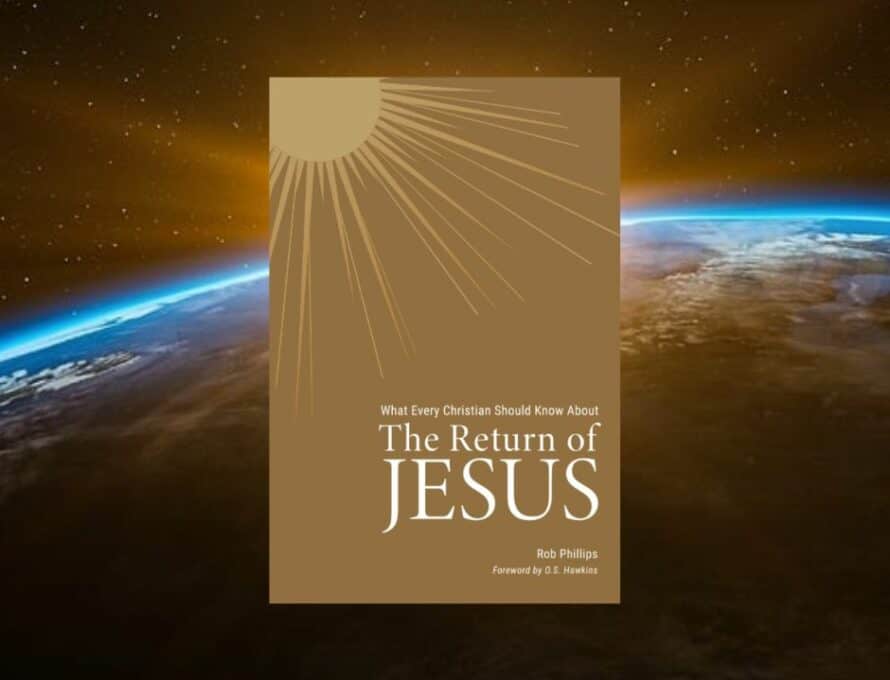This is another in a series of excerpts from What Every Christian Should Know About the Return of Jesus, released by High Street Press and available at Amazon.com.
In the visions John receives while exiled on the Isle of Patmos, he often records the words of Jesus foretelling his return. John may have recorded these visions as early as the A.D. 60s or as late as the A.D. 90s. In any case, Jesus assures his followers – and warns his opponents – that his return is certain.
Here’s a sampling:
Revelation 1:8 – “I am the Alpha and the Omega,” says the Lord God, “the one who is, who was, and who is to come, the Almighty.”
God the Father most likely makes this statement, although some English translations ascribe them to Jesus. It seems best to understand this verse as the Father putting his divine signature on the prophecy of the second coming in verse 7: “Look, he is coming with the clouds, and every eye will see him, even those who pierced him. And all the tribes of the earth will mourn over him.”
While this verse is not an explicit promise of Jesus’ return, it places the Father’s stamp of approval on Old Testament prophecies of the second coming. And it ties together the redemptive work of the triune Godhead to be completed when Jesus returns.
Revelation 3:11 – “I am coming soon. Hold on to what you have, so that no one takes your crown.”
Christ’s promise to come soon (or quickly) seems to point more to his second coming than to temporal judgment on the enemies of the faithful church at Philadelphia. His charge to “hold on … so that no one takes your crown” looks toward the judgment seat of Christ, when Jesus rewards his faithful servants (Rom. 14:10; 1 Cor. 3:11-15; 4:5; 2 Cor. 5:10).
The word “crown” is stephanos in the Greek. It depicts a laurel wreath presented to victorious athletes and soldiers. Believers cannot lose their salvation, for we are eternally secure in Christ. But we may lose rewards God has prepared for us, and we may find ourselves ashamed at his coming (1 Cor. 3:15; 1 John 2:28).
Revelation 16:15 – “Look, I am coming like a thief. Blessed is the one who is alert and remains clothed so that he may not go around naked and people see his shame.”
The imagery of Jesus coming like a thief appears several times in the New Testament. In the Olivet Discourse, Jesus warns his followers to be alert, like a homeowner on guard against a thief, because they do not know the day of Christ’s return (Matt. 24:42-44). Paul reminds the Thessalonians that “the day of the Lord will come just like a thief in the night” (1 Thess. 5:2), a truth Peter affirms (2 Pet. 3:10).
We should bear in mind that Jesus’ return as a thief is not to steal but to take back what is rightfully his. The admonition to be alert and remain clothed may be a reference to guards or homeowners who are tempted to sleep naked in the summer heat. But when a home’s perimeter is breached, the persons responsible for protecting the property may find themselves ashamed, chasing a thief in their birthday suits.
Similarly, followers of Jesus should conduct ourselves in a manner that brings praise rather than rebuke whenever our Lord returns.
Revelation 22:7 – “Look, I am coming soon! Blessed is the one who keeps the words of the prophecy of this book.”
Three times in the epilogue of Revelation, Jesus declares, “I am coming soon” (Rev. 22:7, 12, 20). This accentuates the urgency of Christ’s return and affirms his previous promises in the Gospels and the Book of Revelation. His repeated statement also validates what John has seen and heard on Patmos, and what the apostles have written in their eyewitness accounts and epistles.
We may not fully understand the details surrounding the Day of the Lord, but the New Testament writers make several truths plain:
(1) Jesus is returning one day – physically, visibly, in power and great glory.
(2) We do not know the day or the hour of his return.
(3) We should live in view of his imminent return.
(4) When he comes, all people will know it.
(5) Jesus is judging all people personally, rewarding believers according to their faithfulness and punishing unbelievers in varying degrees according to their evil deeds.
(6) He is creating new heavens and a new earth, setting everything right.
(7) The glory of eternity with Christ causes the “previous things” of this world to fade away (Rev. 21:4).
Eternity may seem far off to us. Yet if we keep the prophecies of Revelation in front of us, we learn to live more comfortably in the tension between the already and the not-yet.
Next: Paul’s anticipation of Christ’s return

